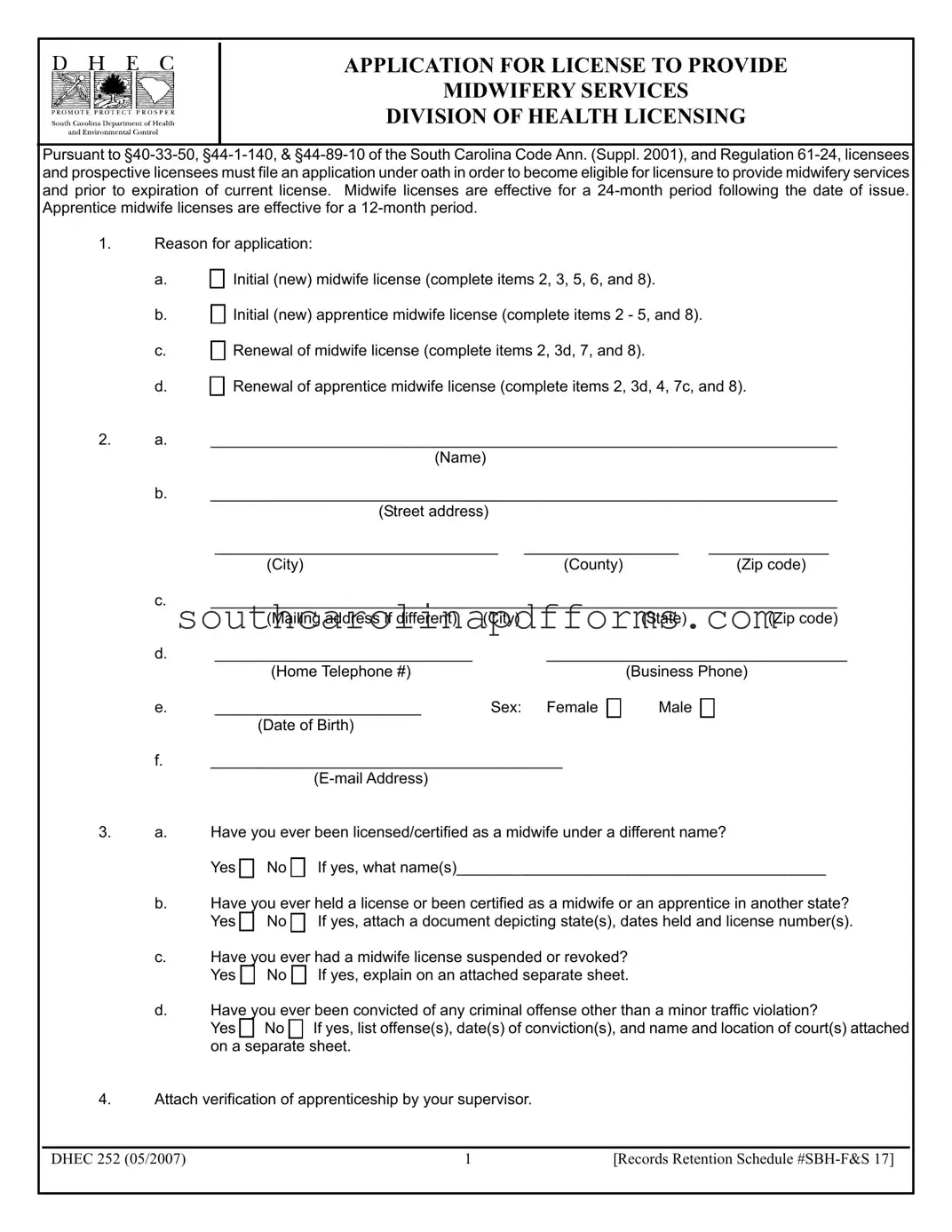The DHEC 252 form serves as a crucial application for individuals seeking to provide midwifery services in South Carolina. This form is mandated by specific state regulations and requires applicants to submit their information under oath, ensuring the integrity of the licensing process. It outlines various reasons for application, including initial licensing for both midwives and apprentice midwives, as well as renewal options for existing licenses. Each license has a designated validity period: midwife licenses are active for 24 months, while apprentice licenses last for 12 months. The application process involves detailed personal information, including name, address, contact numbers, and email, as well as a series of questions regarding prior licensure, criminal history, and apprenticeship verification. Additionally, applicants must attach supporting documentation, such as transcripts, tuberculosis test results, and letters of recommendation. The form culminates in a verification section that requires notarization, further emphasizing the importance of accuracy and honesty in the application. Understanding the components and requirements of the DHEC 252 form is essential for those aspiring to enter the midwifery profession in South Carolina.
